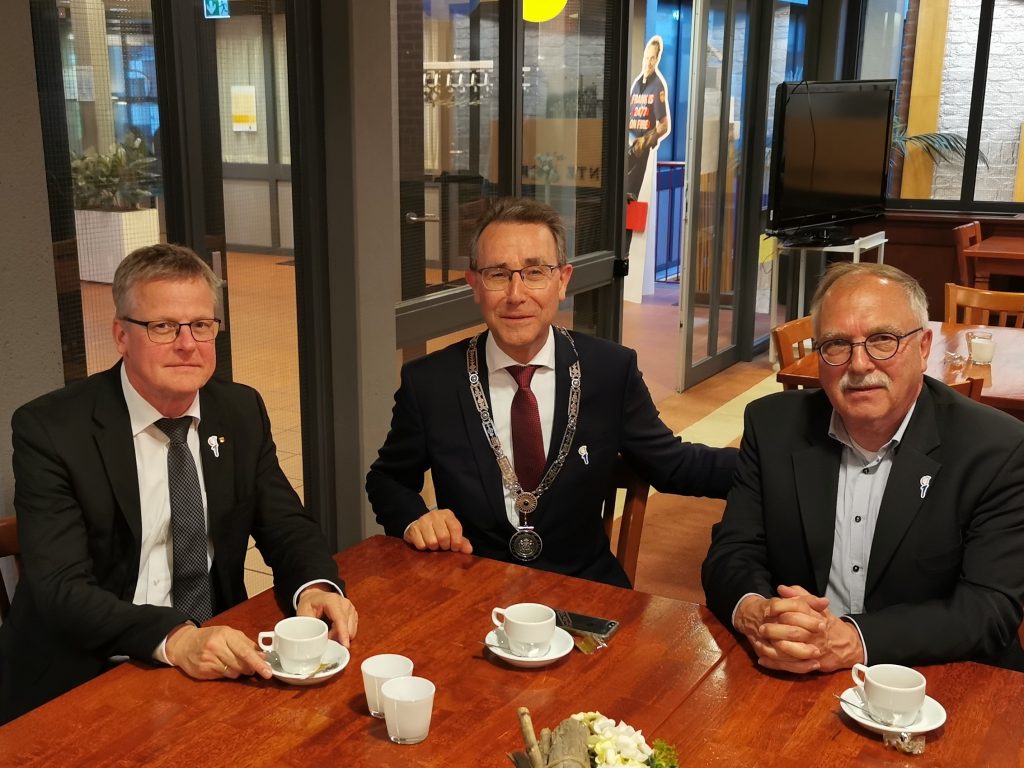Board of the twinning association invited for the first time to the commemoration in the twin town
Borne/Rheine. Only a few days ago, many Rheinenserinnen and Rheinenser experienced Borne as fun, lively, colorful and loud. “Borne op z’n Best” was the motto of the annual festival. On Thursday evening there was silence, absolute silence, in our twin city.
On May 4, people in the Netherlands commemorate all Dutchmen and women who have lost their lives in war situations since World War II, but also in peacekeeping operations.
Originally, “de nationale dodenherdenking “only commemorated the Dutch soldiers and resistance fighters who died in the Second World War. Over the years, other groups were added. These include, for example, the victims of the military actions in Dutch India and those of the United Nations peacekeeping operations in which the Netherlands participated, such as in Bosnia and Afghanistan.
For many decades, Germans were not welcome at these events. The twinning association was all the more pleased that this year, for the first time, not only Rheines mayor, but also the entire board of the association was officially invited. Certainly one of the highlights in the anniversary year, because Borne and Rheine are connected by a 40-year town twinning.
The commemorative event began in the “Oude Kerk” in AltBorne. The oldest part of this church dates back to 1350 and wall paintings found during the restoration of the churches between 1919 and 1921 date back to 1482.
The church formed the wonderful space for a short commemorative ceremony, which was framed by the “Bornse Kleinchor”. This male choir, accompanied by piano and violin, also gave the guests from Rheine “goose bumps”.
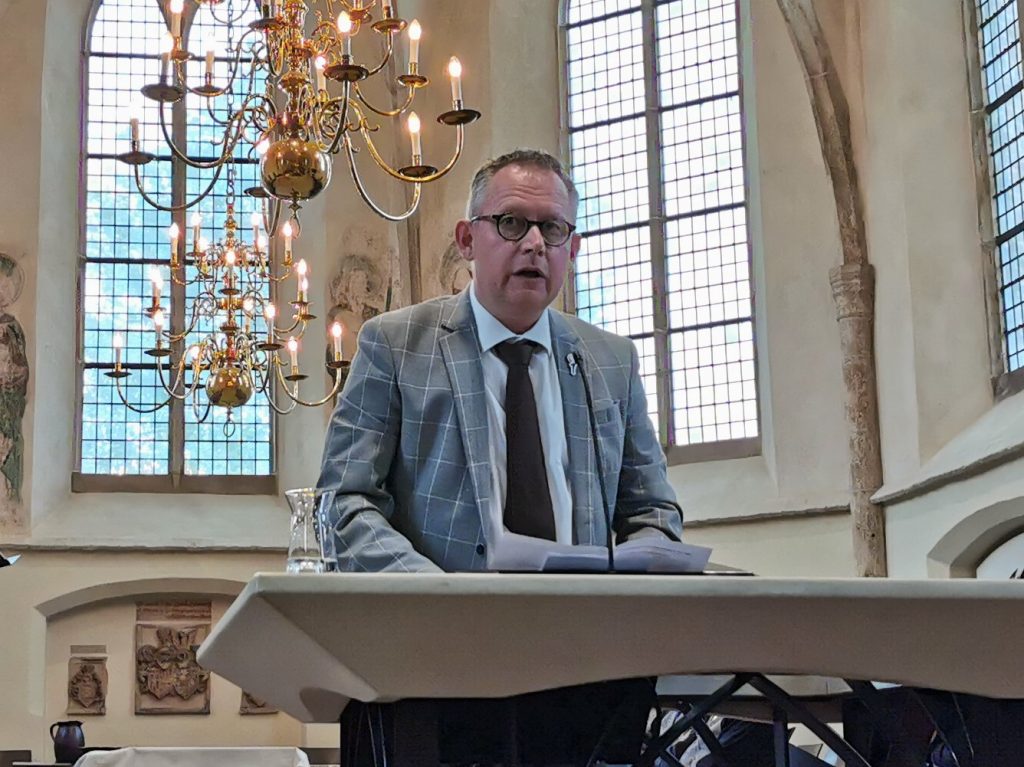
Pastor Johan Meijer recalled Ukraine: “War is never far away” he drew comparisons between the German occupation 80 years ago and the situation in Ukraine today. “To be freed from these horrors of the underworlds takes a lot of courage and daring!”
In a silent walk through AltBorne, accompanied by two young drum beaters, we went to the memorial on the “Rheine Plein”. Here there was a two-minute silence for the many participants. Afterwards, the different groups laid wreaths. The guests from Rheine also laid long-stemmed white roses on the stones of the memorial.
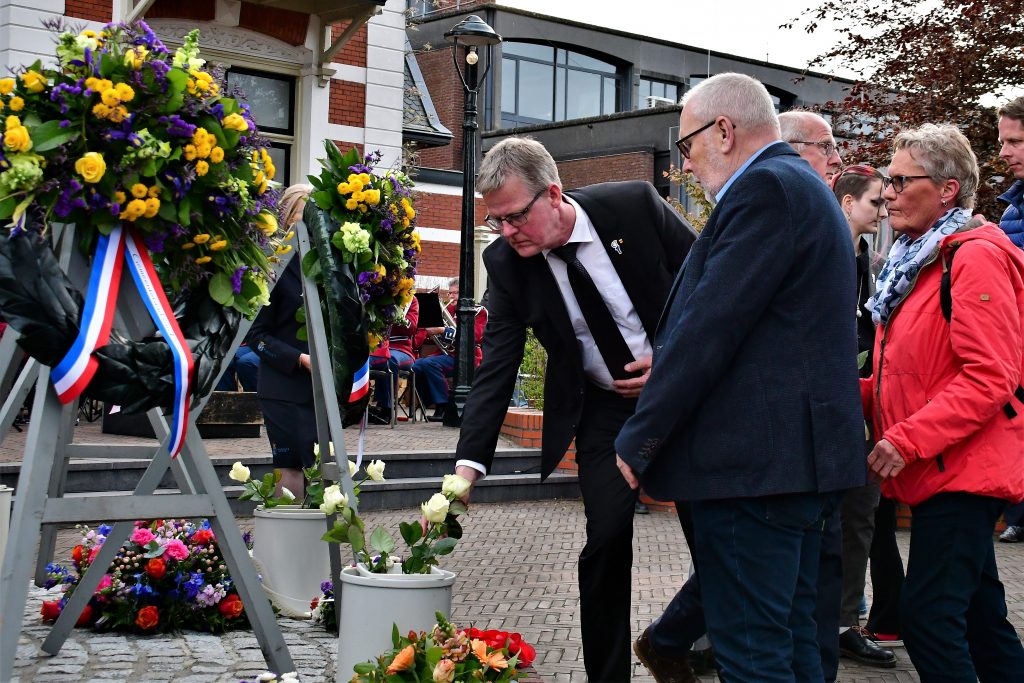
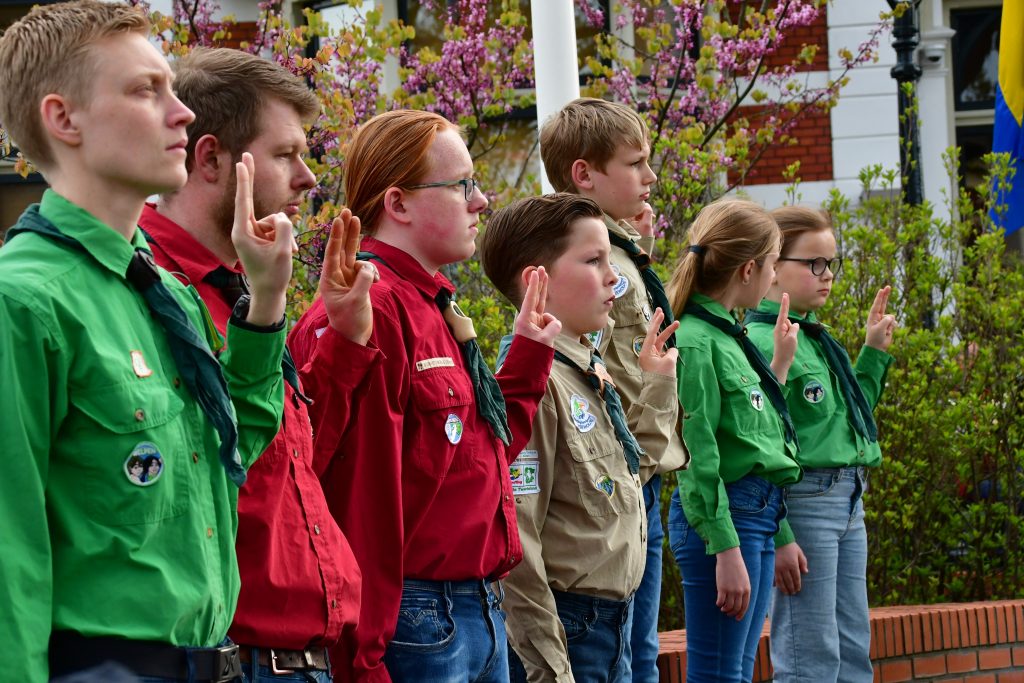
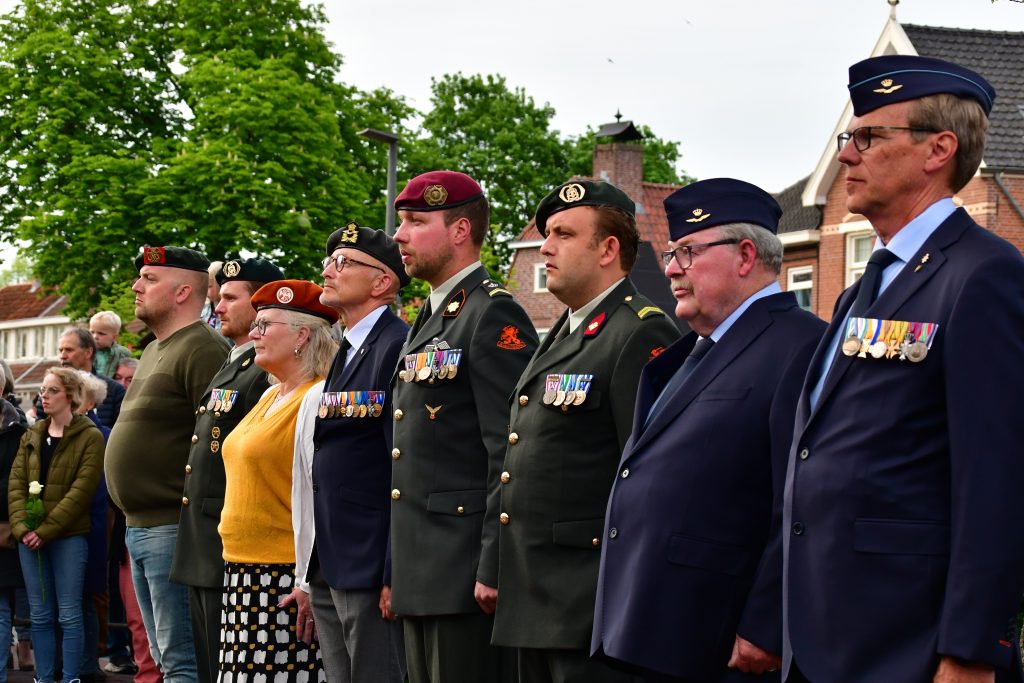
Everyone listened with emotion to the closing national anthem of the Netherlands, the “Wilhelmus”.
“War is never far away”
From Bornes Mayor Jan Pierik’s address at the commemoration in the Old Church.
“Every year on May 4, we stand side by side to remember. Let us reflect on the past and recognize that we do not want to relive all the horrors of war. But “living with war” does not pass us by and is even very close, as we learn through the hundreds of Ukrainians who live in our midst precisely because of the war on Europe’s border.
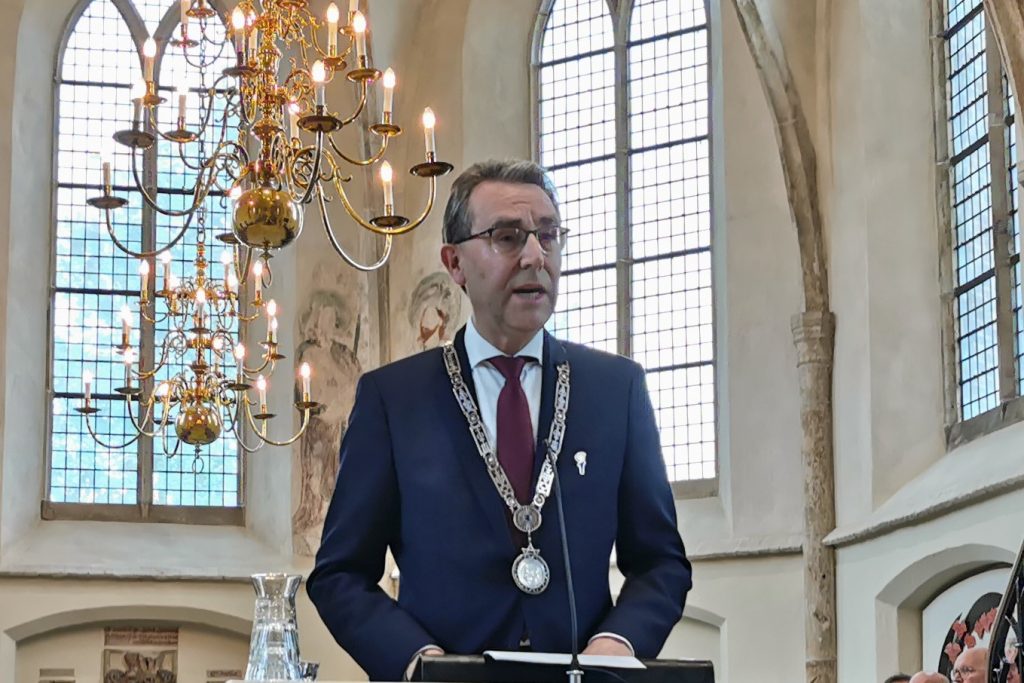
Violent conflicts and wars exist at all times and seem to be peculiar to man. Some become silent and despondent because of it. But it motivates me all the more to speak about it and to draw attention to the ability of human beings to not let fights and disagreements turn into violence.
Living in peace and containing violence is a strong capacity we have within us, but circumstances sometimes make it paper-thin and leave us vulnerable to the lure of the violent alternative. That is why it is important we keep alive the history that bears witness to it, and it is important that every year we remember that many civilians and soldiers lost their lives to gain or maintain peace and freedom.
80 years ago, the Netherlands – and Twente in particular – was faced with a historic event of great magnitude. One with enormous repercussions. Also for the inhabitants of Borne. On April 29, 1943, all 300,000 Dutch soldiers who had fought in 1940 were called up for labor duty. Due to the large German losses during the Battle of Stalingrad, additional manpower was needed to keep the German war industry going.
After the teletype from the commander-in-chief of the Wehrmacht arrived, the 3,000 workers at the Stork machine factory in Hengelo stopped work almost immediately. Thanks to the efforts of Femy Efftink, a telephone operator at Stork, the strike was heard almost throughout the country. Within hours, more than 500,000 people in the Netherlands resisted German oppression. It became the largest popular resistance during the war in Europe.
The German occupation forces reacted with harshness and terror, also in Borne. In the night of May 1 to 2, eight people were taken from their beds and transported to the Vught concentration camp. And although work resumed on Monday, May 3, on the orders of Lieutenant Wüscher, people were rounded up indiscriminately, including Johannes Hendrikus Jansen, a butcher from Almelo. He and Marinus Gerardus Neurdenburg and Cornelis Brasser, both plant managers at Spanjaard, were shot near the Welemans Bridge in Borne on the night of May 3-4.
The April-May strikes became big as the labor action measures of the German occupiers to the sense of justice and solidarity. It is these valuable character traits that help us stay connected to each other. The Noaberschap, as we call it here, and of which we are proud, is important in preserving our freedom.
In today’s world, there are movements in society that unsettle people, drive people apart and even turn them against each other. Together we can ensure that divisions do not increase, but that we remain in solidarity with each other. Just as our forefathers did during the April-May strikes in 1943.
On the eve of Liberation Day, the day when we can celebrate our freedom in a great celebration, let us remember the civilians and soldiers who have died in the Kingdom of the Netherlands or elsewhere in the world since the outbreak of World War II, in war situations and in peacekeeping missions.
Above all, let us continue to recognize and express what hard-won peace and freedom is worth. Because war is never far away!
The Bornenser and guests from Rheine met for a cup of coffee in the town hall at the end. Here they discussed the past, but also the near future of the town twinning. Because there are still some highlights waiting in this anniversary year.
